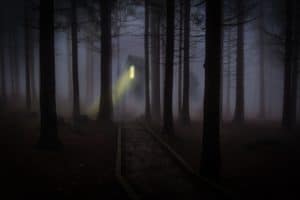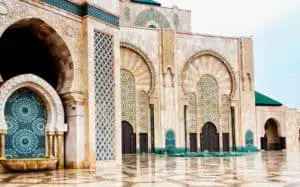Delving Deeper into World Mythology: Exploring the Universal Threads of Human Culture
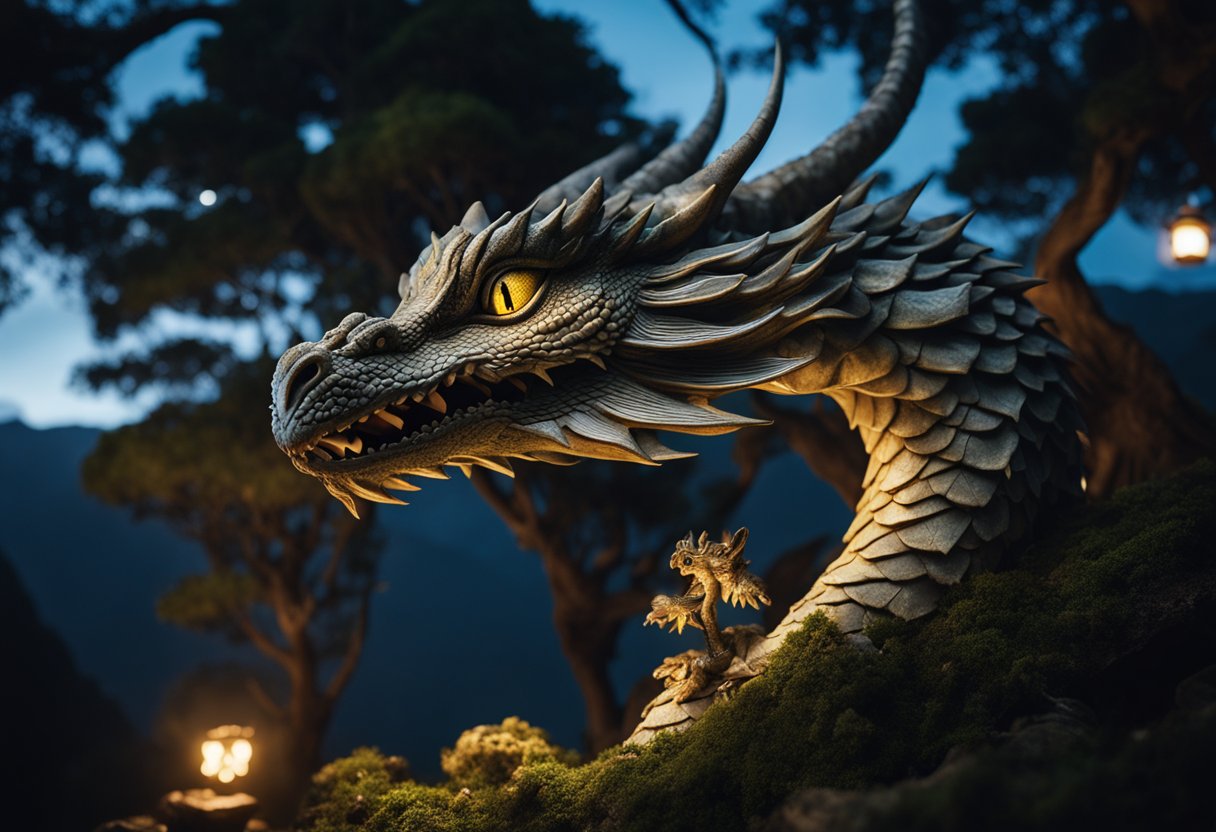
Updated On: April 24, 2024 by Eman Sameh
Mythology forms the bedrock of cultural heritage, capturing the imaginations of societies through the power of story. These narratives offer more than just entertainment; they serve as a binding force that reflects the values, fears, and aspirations of a civilisation. Across every continent, from the birth of civilisation to our modern era, myths have chronicled the human experience, presenting a diverse tapestry of deities, heroes, and morality tales that resonate with audiences even today.

In exploring mythology, we uncover universal themes that transcend time and geography. The pantheon of Greek gods with their all-too-human traits, the heroism depicted in ancient epics, and the transformative influence of myths on art and literature showcase the enduring legacy of these stories. As we unravel these narratives, we discover not only the origins of ancient cultures but also the ways in which these stories continue to shape contemporary identity, ethics, and artistic expression.
As our understanding of world mythology deepens, we see its reflections in the vast arena of performing arts, the adaptation of mythical stories in modern media, and the symbolic traditions that still colour our celebrations of life. The relationship between mythology and nature, influencing beliefs and behaviours across generations, reminds us of the intertwined narrative that continues to evolve. Through this exploration, we not only preserve the memory of ancient cultures but also contribute to the living legacy of myth in modern times
The Essence of World Mythology and its Cultural Role
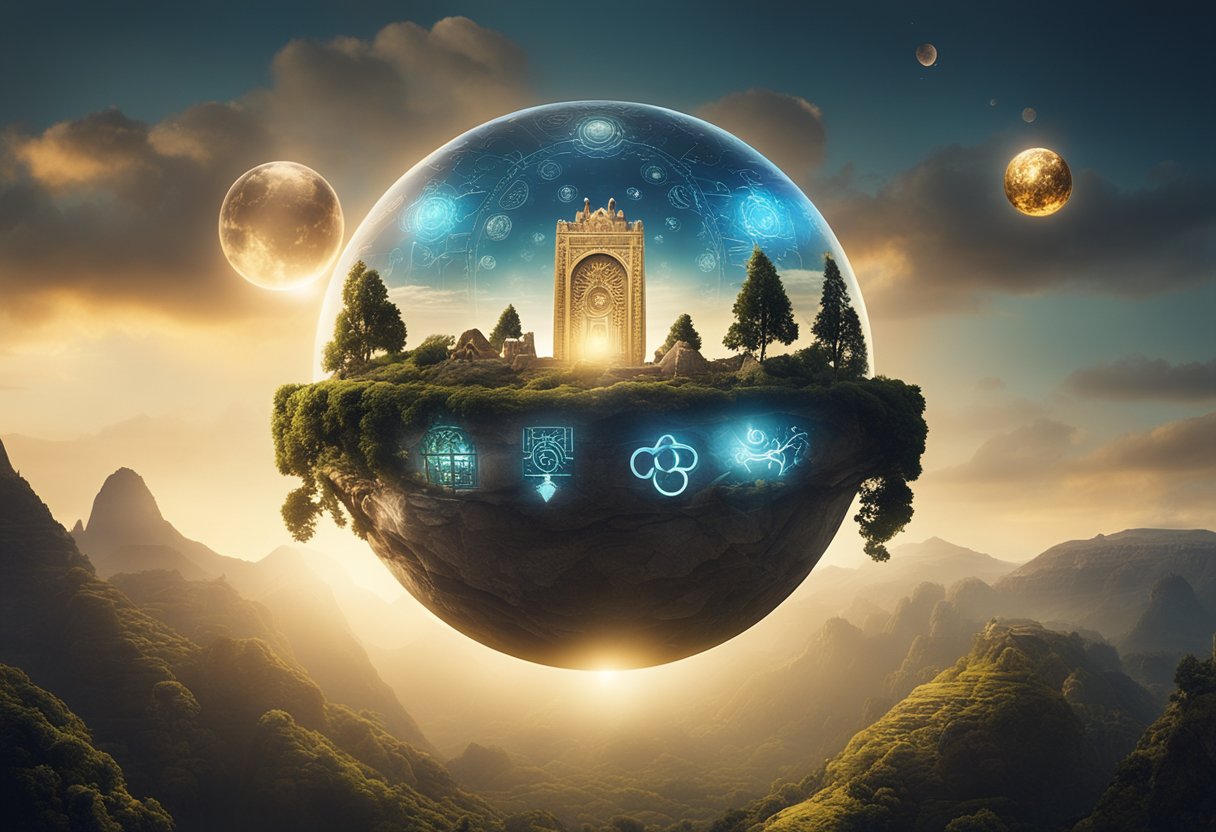
Myths remain a fundamental element in defining the ethos of cultures and embedding lasting values within societies. They serve as both a mirror and an architecture for humanity’s collective consciousness.
Interpreting Mythological Themes
Myths encapsulate the power of narratives and the deep-seated themes that resonate across the cultural landscape. They articulate an understanding of reality, balance, and the overarching mysteries of life. When we engage with these stories, we grasp the intricate tapestry of beliefs and values that have guided past generations and continue to influence us today.
Myths and the Human Condition
In every myth lies a kernel of universal truth about the human condition; they reflect our struggles, our triumphs, and the profound lessons that these experiences impart. Myths often address the fundamental aspects of humanity, from our origins to the complex aspects of our nature, articulating the continuum between the individual and the collective experience.
Cultural Reflections in Mythology
Myths serve as reflections of their originating cultures, providing insights into the traditions and beliefs held sacred by different societies. They chart our cultural evolution and influence the current societal narratives, ensuring that the essence of a people’s identity is preserved and passed on through the stories we tell about ourselves.
The Pantheon of Greek Mythology

The Greek pantheon encompasses a rich tapestry of deities and heroes that have shaped the cultural bedrock of Western civilisation. These mythological figures embody human traits and natural forces, expressing the collective consciousness of ancient Greece.
Olympian Gods and Goddesses
The Olympian gods and goddesses sat at the heart of Greek mythology. The pantheon was ruled by Zeus, the god of the sky and thunder, alongside his queen, Hera, the goddess of marriage and birth. Their celestial abode was Mount Olympus, considered the lofty realm of the divine. Other significant deities included Poseidon, god of the sea; Athena, goddess of wisdom and strategy; Apollo, god of the arts and prophecy; Aphrodite, goddess of love and beauty; and Hermes, the fleet-footed messenger of the gods. Each deity had a domain of influence, symbolising aspects of the natural world and the human psyche.
- Zeus: Lightning bolt, eagle, oak tree
- Hera: Peacock, cuckoo, cow
- Poseidon: Trident, horse, dolphin
- Athena: Owl, olive tree, helmet
- Apollo: Lyre, laurel wreath, bow and arrow
- Aphrodite: Dove, rose, swan
- Hermes: Caduceus, winged sandals
Heroes and Mortals in Greek Myths
Heroes and mortals held a unique place in the Greek mythological landscape, often acting as bridges between the divine and human realms. Famed heroes like Heracles, known for his twelve labours, Perseus, the slayer of Medusa, and Odysseus, the clever king of Ithaca, remain etched in our consciousness. These characters faced tremendous challenges, some blessed by the gods, others cursed, and their tales explore themes of bravery, tragedy, and the search for honour. Other storied individuals include Theseus, who conquered the Minotaur; Prometheus, who stole fire for humanity; Orpheus, the enchanting musician; and his beloved Eurydice, whom he sought in the underworld. The actions and fates of these mortals reveal a pantheon as intricate and fallible as humanity itself, providing timeless narratives that continue to resonate.
Art and Literature Influenced by Myth
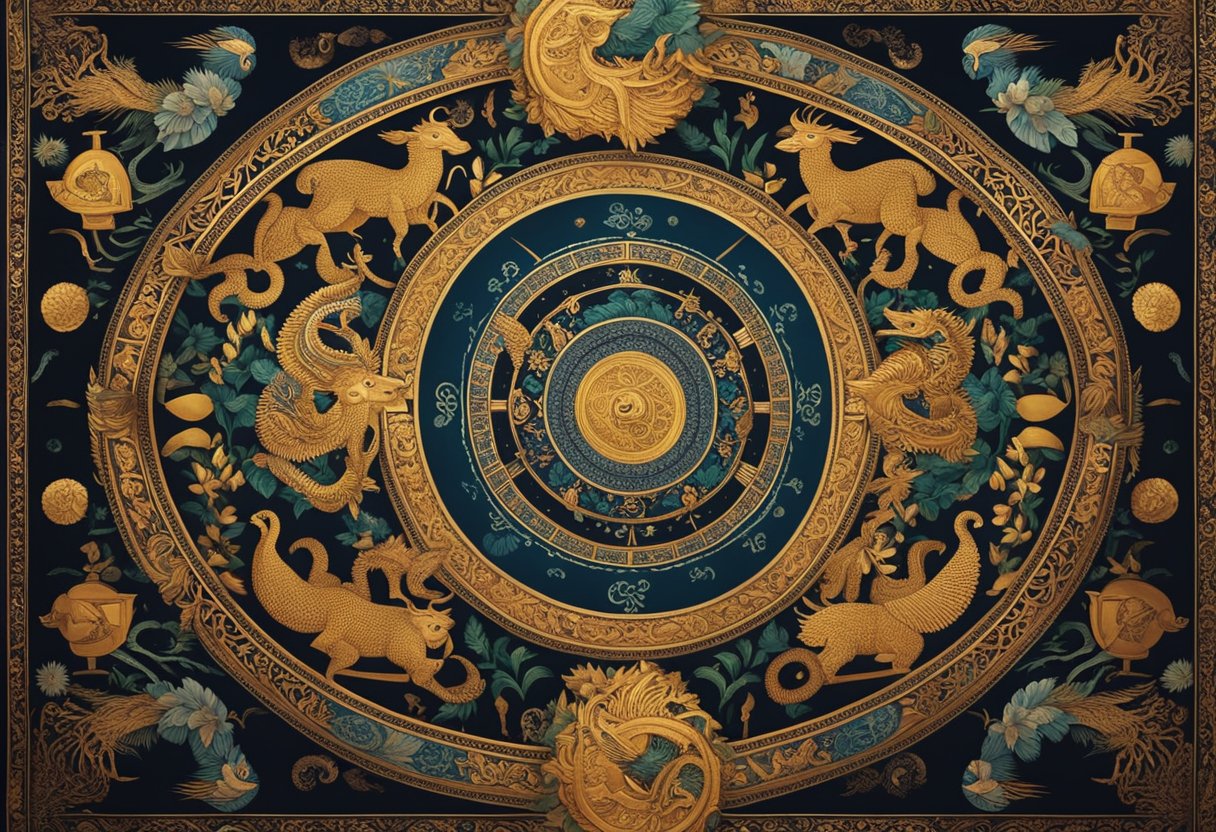
In the tapestry of human culture, myths have been a central thread, colouring various forms of artistic expression from the canvases of ancient Greece to the pages of modern novels. Our traditions and collective psyche have been deeply influenced by these powerful narratives.
Mythic Symbolism in Visual Arts
Visual arts have long been steeped in mythological content, serving as a canvas to explore the themes of love, sacrifice, and the human condition. Symbolism in art can trace its roots back to mythological representations, which were used to convey complex ideas and narrative elements. Using icons and symbols allowed the artists to communicate layers of meaning that might have been subversive or heretical if expressed openly. The beauty and emotional resonance of these mythological motifs lie in their ability to tell stories without words, capturing the imagination across centuries.
Epic Narratives in Literature
From the time of Homer and his Iliad, literature has been a vehicle for mythological stories that entwine with our history and identity. Books—serving as time capsules of thought—have preserved the epic tales of heroes and deities, reflecting our understanding of glory and human fallibility. Love, honour, and various other elements from mythic tales have transcended time, offering a rich lexicon from which authors draw inspiration. It’s evident that the foundational epics of literature are not merely stories but serve as pillars upon which much of our literary heritage is constructed.
Mythology Through the Ages
Mythology embodies the evolving tapestry of human expression, revealing centuries-old stories that have been passed down, adapted, and enshrined in the collective consciousness. These tales provide a glimpse into the complexities and philosophies that have shaped societies, binding us with timeless wisdom.
Adaptation and Evolution of Myths
Myths are far from static; they adapt and grow with each telling. Legends that once explained the mysteries of the natural world evolve, embedding themselves into the fabric of modern culture. For instance, myths that began as oral traditions in ancient times become the written works of later centuries, taking on new forms and encompassing the shifting challenges faced by humanity. Mythological stories, such as those explored in East African Mythology, demonstrate the dynamic nature of these narratives, constantly preserving their essence while aligning with changing times.
Timeless Wisdom in Modern Contexts
The wisdom encapsulated in mythological frameworks transcends time, providing a philosophy that continues to resonate in contemporary society. By preserving the fundamental truths within these myths, we can apply their lessons to modern dilemmas, achieving unity amidst diversity. The story of Prometheus, for example, touches upon rebellion and consequences; these themes are as relevant today as they were in the past, offering a lens through which to view our own actions and their impacts. Greek mythology, with its rich trove of characters and stories, provides a timeless wellspring of insight for us to draw upon.
Through the adaptation and evolution of myths and the application of their timeless wisdom, mythology remains a vibrant and essential aspect of the human story. Whether they capture the essence of a culture or impart age-old wisdom, these stories bind us across time and space.
Nature and Mythology: An Intertwined Narrative
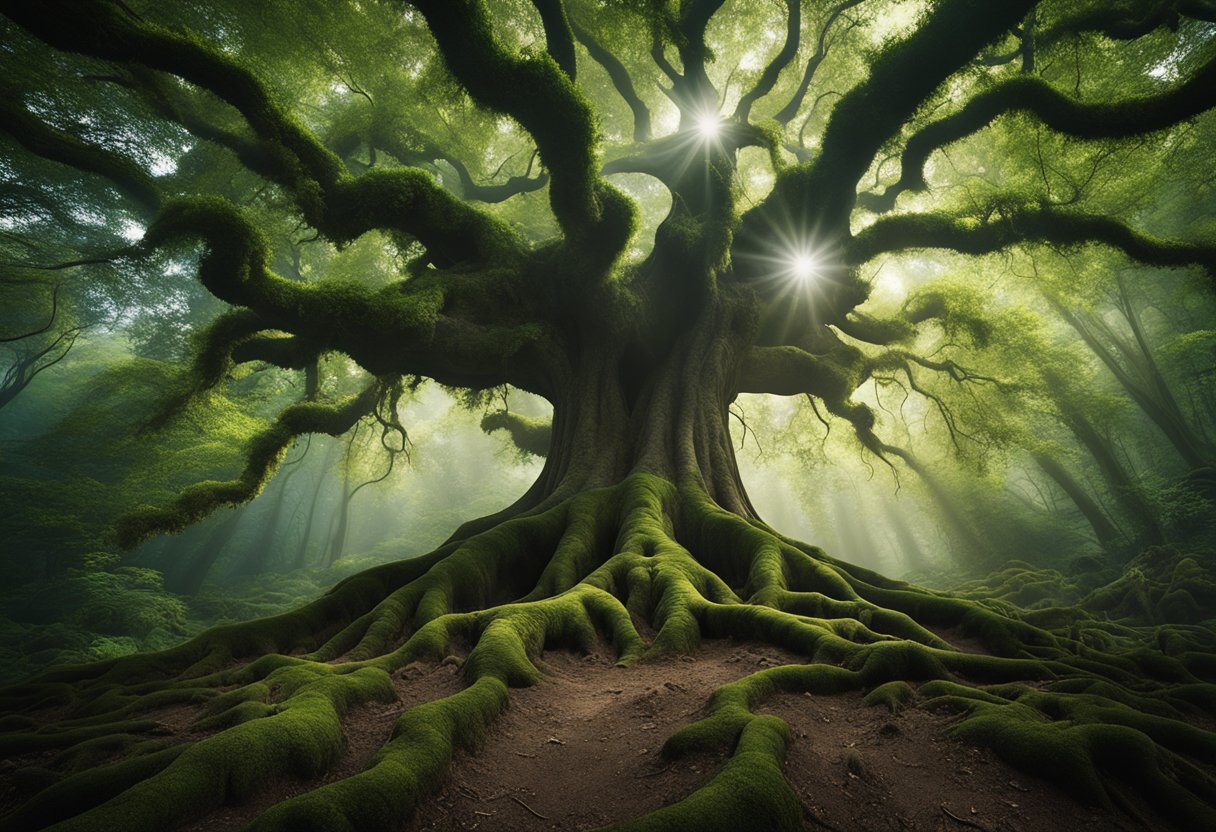
Myths from around the world often embody the profound bond between the natural world and humanity. They encode the wisdom of our ancestors, revealing how they understood and related to the elements around them.
Elements of Nature in World Myths
Myths serve as a bridge connecting us to the natural world, unfolding narratives where every mountain, river, and plain holds significant cultural value. For example, in many cultures, mountains are more than just towering landforms; they are seen as the abodes of deities or as spiritual centres where the heavens and earth meet. In the rich tapestry of world mythology, rivers are glorified as sources of life and often personified as gods or spirits, indicative of their importance to ancient societies. Meanwhile, plains are frequently depicted as vast canvases where the drama of life, both human and divine, unfolds under the watchful eyes of nature.
Mythical Beings and Natural Phenomena
Not just landscapes but even meteorological phenomena like rain are woven into myths, with deities or spirits assigned to control them, reflecting a desire for harmony with the unpredictable forces of nature. The Inuit folklore surrounding the narwhal illustrates this point, intertwining marine biology with tales that attribute the creature’s remarkable tusk to a tragic maternal saga, illustrating the indigenous perspectives on nature’s marvels. Furthermore, contemplating the relationship between nature and mankind in Greek mythology reveals a complex narrative where nature often mirrors the tumultuous affairs of gods and humans, such as in the story of Persephone, whose fate causes the seasons to change.
Celebrations of Life and Mythology
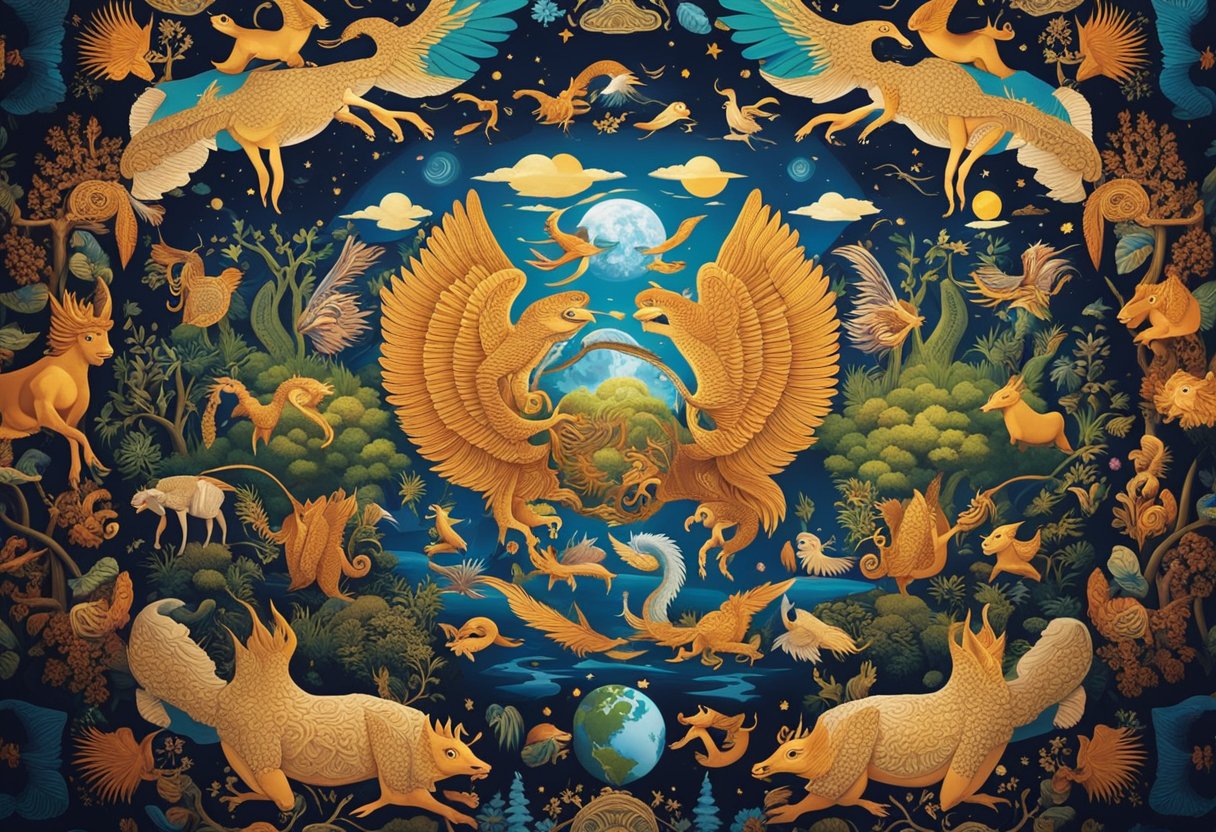
Mythology intertwines with the very fabric of our lives, manifesting in vibrant celebrations that mark the passage of time, honour the gods, and reflect our values.
Festivities and Mythical Observances
Festivities rooted in mythology often symbolise gratitude and courage, mirroring the challenges faced by deities and heroes. In ancient times, Dionysus, the god of wine, inspired festivals like the Bacchanalia, where wine flowed abundantly, echoing the communal spirit and unity of those celebrations. These gatherings were not only about revelry; they were a form of storytelling, where tales of fate and divine interventions were passed from one generation to the next.
- Gratitude was expressed through offerings and feasts, thanking the gods for their benevolence.
- Courage was celebrated with athletic competitions or plays reenacting heroic sagas.
People continue to weave these elements into modern-day observances, perpetuating a legacy of cultural practices that date back millennia.
The Role of Myth in Personal Traditions
Mythology still shapes our personal traditions, often unconsciously, infusing our lives with meaning. We draw from stories to face challenges in our own lives, using them as a reservoir of courage and wisdom. Personal milestones and achievements are frequently linked to a narrative of overcoming fate as we aspire to the heroism celebrated in myths.
- Our storytelling around wine tables becomes a modern echo of the Symposium, where philosophical dialogues and tales flourished.
- The pursuit of unity during weddings or birthdays parallels the communal harmony sought by our ancestors.
These elements are the textured threads that bind our contemporary life events to the rich tapestry of ancient world myths.
The Ethos of Heroism in Myths
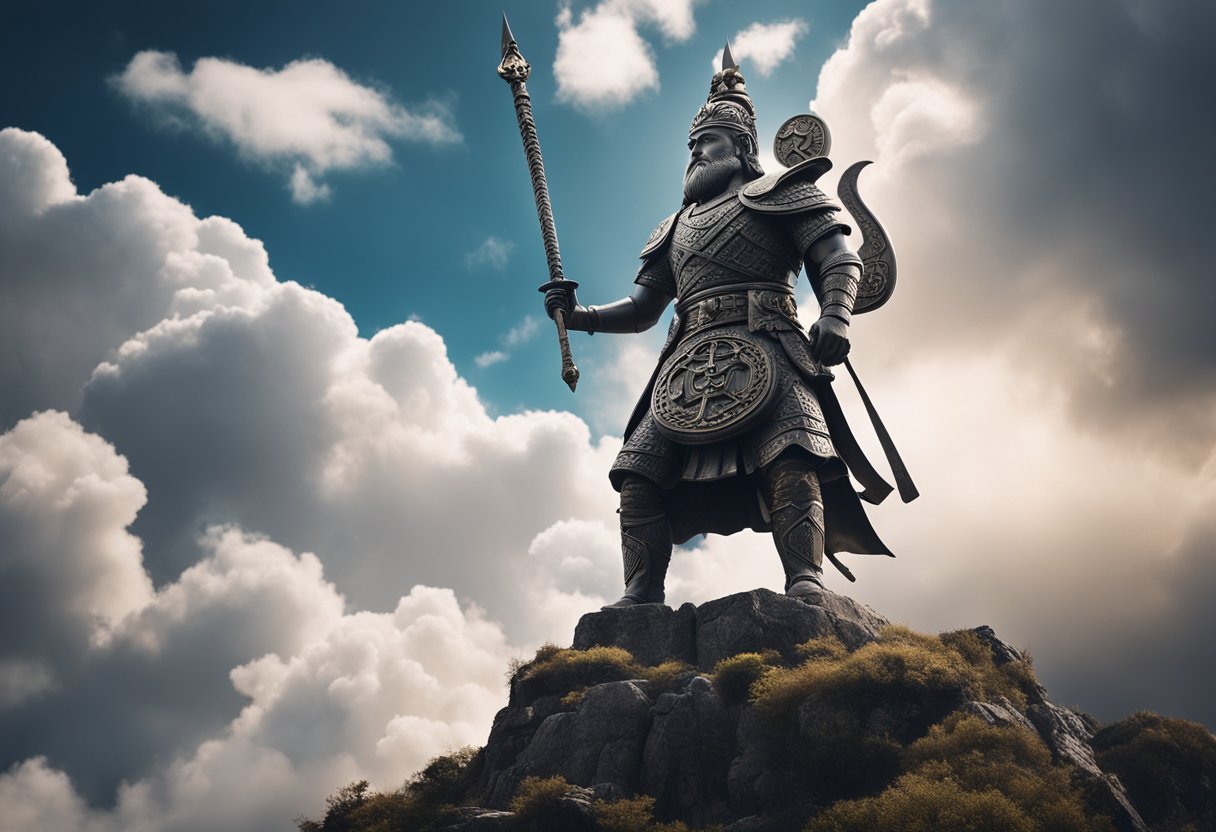
Myths have long served as the canvas for illustrating the profound principles of heroism. These narratives offer us a glimpse into the timeless virtues and the high stakes that define the quintessential hero.
Legendary Deeds and Moral Lessons
Heroes of myth are often depicted accomplishing legendary deeds that transcend the scope of ordinary life. These acts serve as the epicentre for imparting moral lessons to us. Take Hercules, whose heroism is exemplified by feats of strength and resolve, teaching us the value of courage and determination in overcoming challenges. His trials and triumphs reinforce the idea that honour is not bestowed but earned through action and sacrifice.
Similarly, the hero’s journey is a prevalent blueprint within myths, presenting an array of obstacles that heroes must navigate. Their adventures are designed not just to entertain but to instil ideals such as unity and honour. For instance, Aeneas’ odyssey isn’t solely for personal glory; it embodies the collective aspirations and values of an entire culture, highlighting the role of unity and duty to a cause greater than oneself.
Human Virtues Embodied by Mythic Heroes
Delving into mythology, we encounter gods and heroes who embody many human virtues. Odysseus’ long journey home is as much about intellectual wit and perseverance as it is about physical might. He exemplifies the human potential for ingenuity and adaptability, virtues that spark reflection on our capabilities when faced with adversity. Such stories from across the mythological spectrum accentuate universal truths about human nature.
Furthermore, our connection with these lofty figures arises from the virtues they personify. Athena’s wisdom, Thor‘s strength, and Horus’ vision offer symbolic touchstones, inspiring us to strive for those qualities in our lives. They challenge us to confront our personal trials with integrity and valour, reinforcing the ethos of heroism that has bound countless generations through shared myths.
Cultural Identity and Preservation
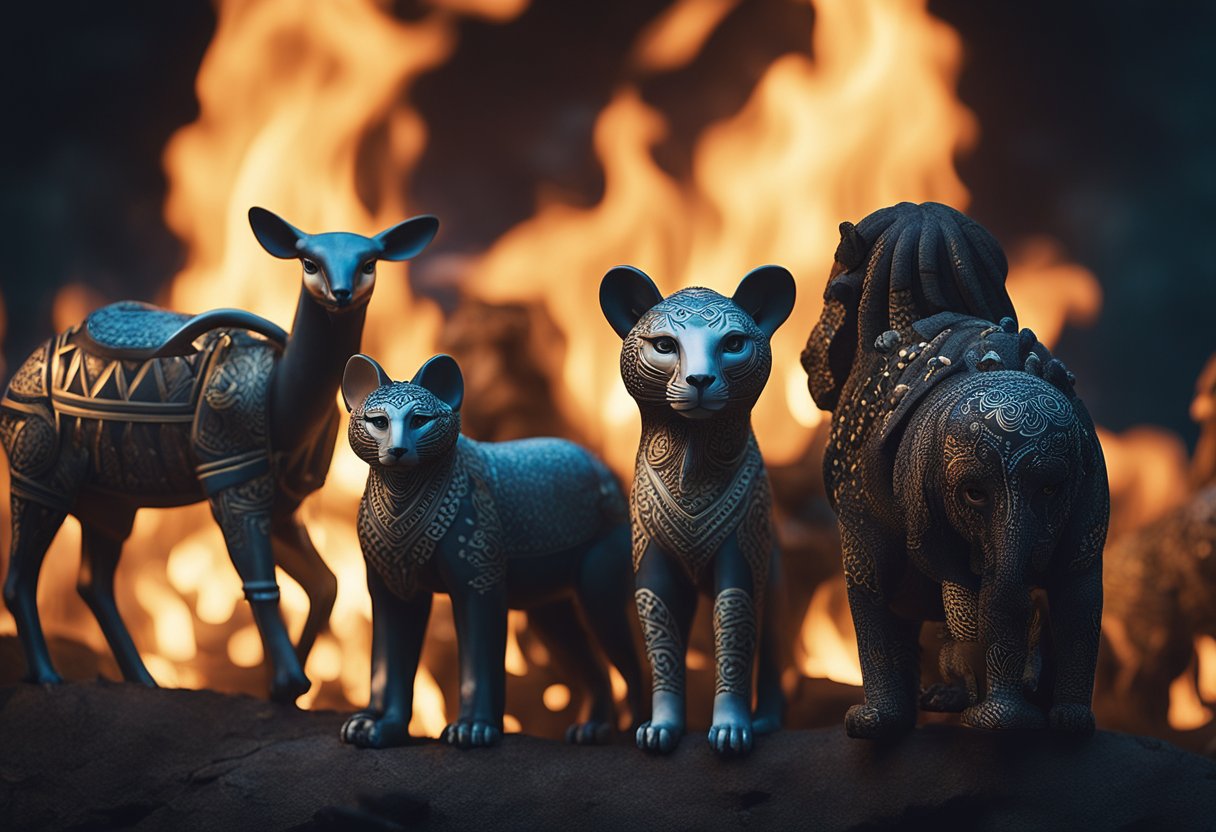
In exploring the multifaceted world of mythology, we recognise two fundamental aspects: its role in crafting national tales and its power in safeguarding the intricacies of our cultural heritage.
Mythology in Shaping National Narratives
Mythology offers a tapestry of stories upon which nations build their identities, creating a common sense of belonging among people. These tales become woven into the fabric of our nation’s culture, influencing norms, traditions, and even national policies. In the tales of the Phrygians, for example, we find the root of their national identity, which has left a lasting impact on the ethos of the region despite the civilisation’s relatively short historical period.
Guarding Cultural Heritage Through Stories
Our cultural heritage is kept alive through the oral traditions, and stories passed down from generation to generation. These stories often encapsulate more than just narratives; they include dance, music, and societal norms that articulate our cultural identity. By preserving these stories, we guard the diverse heritage of our cultures, ensuring that the various sources of our rich past and the lessons they contain are not lost to time. Through platforms like Connolly Cove, we are reminded of the enduring significance of storytelling in conserving the world’s diverse cultural tapestries.
Mythological Expressions in Performing Arts
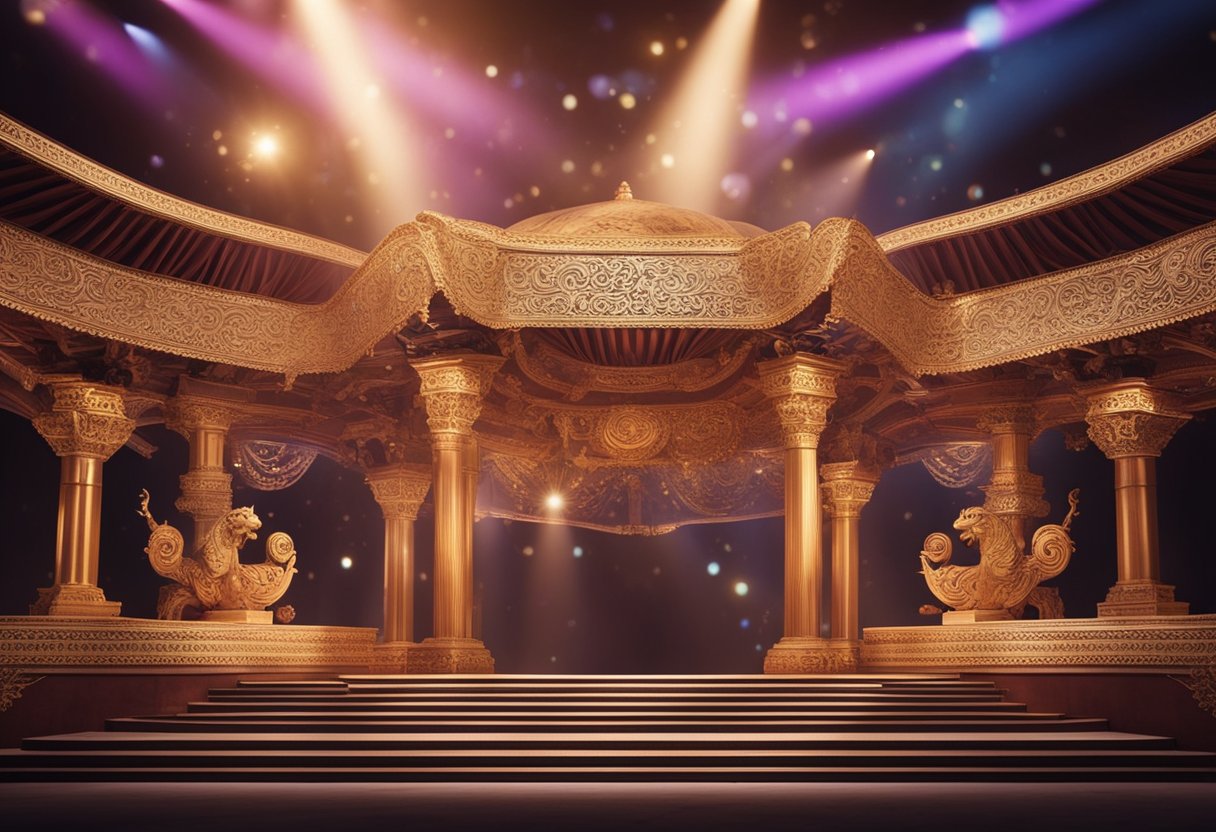
We observe a rich tapestry of mythological narratives seamlessly woven into the fabric of performing arts. These timeless tales not only adorn the stage with their mystical charm but also convey profound cultural wisdom.
Dramatic Representations of Myths
Mythology serves as a cornerstone for dramatic productions, presenting a medium where legends spring to life through the power of performance. In theatre, myths are reimagined to capture the beauty and complexity of ancient lore. Contemporary plays and operas routinely interpret classical myths to reflect on modern life, as seen in the work of 20th-century composers and choreographers revitalising Greek myths through opera and ballet. The power of these narratives lies in their universal themes—love, power, tragedy—which continue to resonate.
Dance and Rhythms of Cultures
Dance across the world encapsulates the wonder and imagination inherent in mythology. Traditional dance forms frequently narrate sacred stories, such as the South Indian Bharatanatyam, which intimately links with Hindu mythology, illustrating the divine tales through intricate movements and expressive gestures. The transcendent portrayal of deities through Bharatanatyam demonstrates this strong interconnection. Similarly, interpretations of Greek mythology in ballet showcase a harmonious blend of narrative and form, providing entertainment and a glimpse into the cultural psyche.
Mythology in Modern Media
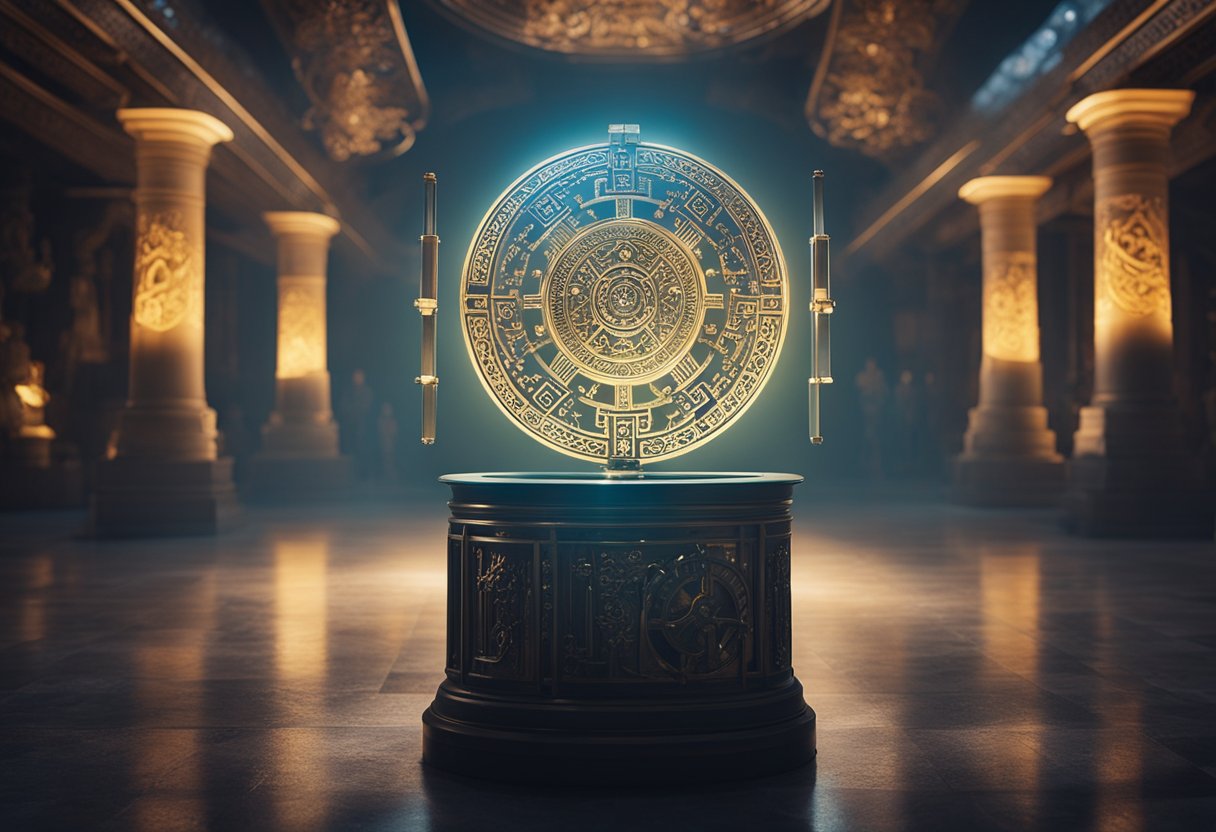
We find that mythology has seamlessly transitioned into modern media, offering a rich tapestry of narratives that resonate with contemporary audiences. This connection not only entertains but also preserves the vital cultural lessons embedded within ancient stories.
Influence of Myths in Movies and Digital Games
Narratives drenched in mythology have been a mainstay in movies and video games, where the chaos of gods and the hero’s journey are often central themes. Ageing tales are given new life on the screen, transforming the way we engage and interact with these stories. Films like “Harry Potter” and “Star Trek” have their roots in mythological elements, illustrating the enduring appeal of myth in modern perspectives of media. They wield the power of myths to weave stories that connect with viewers across different cultures.
Adapting the archetypal challenges of gods and heroes into gameplay, developers craft experiences that allow players to live out their own epic tales. Engagements in digital realms frequently mirror the lessons of classic mythology, encouraging players to think critically about the narratives they are part of. It is this blend of old and new, the adapting of timeless stories into interactive media, that continues to fascinate and draw us in.
Adapting Ancient Tales for Contemporary Audiences
The art of adapting ancient myths for today’s viewership goes beyond mere replication; it requires skilful writing and a deep understanding of cultural nuances. Modern storytelling through TV series, comics, and movies often takes the foundational elements of mythological chaos and ageing gods but spins them into narratives that reflect current societal issues and values. This process ensures that the stories maintain their universal appeal while becoming more relatable to contemporary viewers.
Our retelling of these ancient myths in modern media does more than simply entertain; it offers insights into human nature and life’s existential questions. By revisiting timeless tales, we continue to explore the complexities of life and humanity, ensuring that the wisdom of the old remains relevant and accessible for future generations.
The Future of Mythology
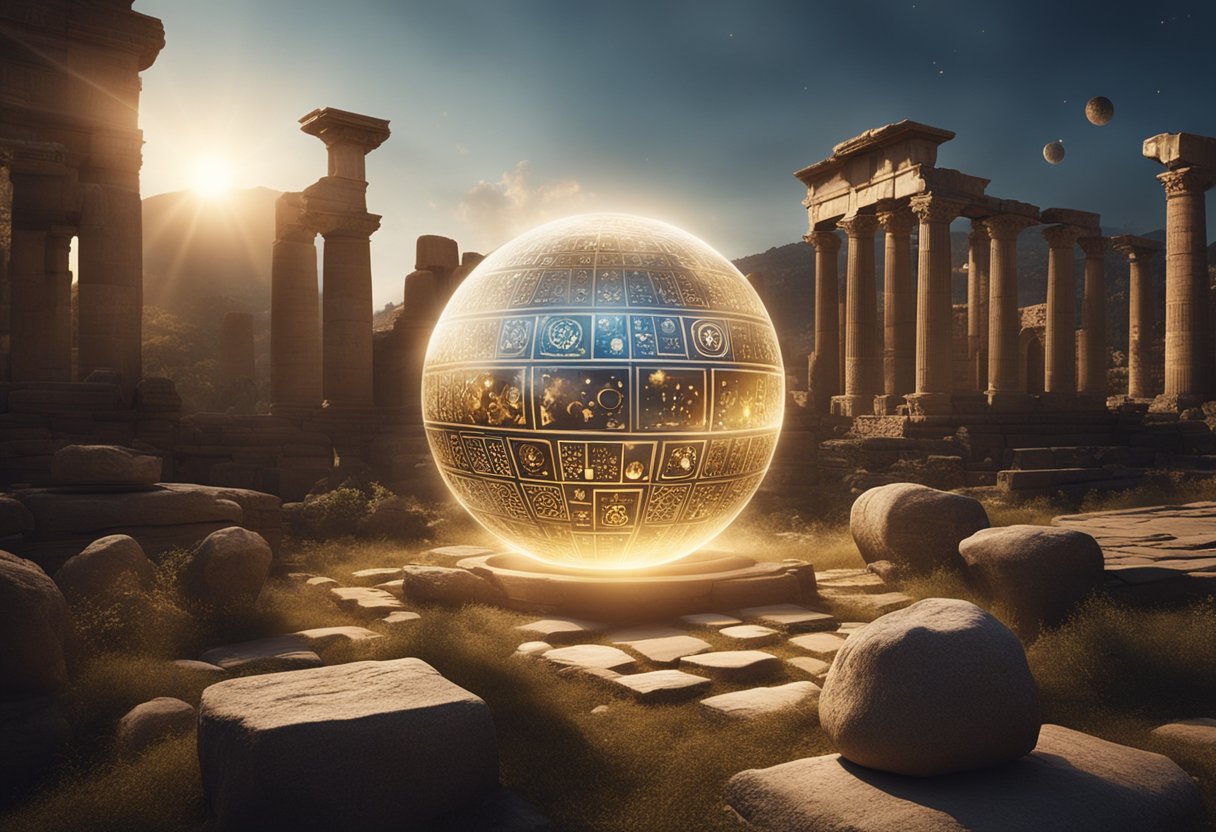
In contemplating the trajectory of mythology, we predict it will continue to captivate our culture and art, retaining its vital role in the tapestry of human expression. Myths have encoded societies’ wonder and imagination, preserving stories that resonate with the very core of human nature.
As storytelling evolves, mythology adapts, utilising modern mediums to inject age-old tales with renewed relevance. We envision an interplay between traditional narrative structures and contemporary themes, where Chinese legends and mythologies from around the globe find fresh life in digital art, cinema, and literature.
We foresee the following developments:
- Virtual Reality (VR) and Augmented Reality (AR): These technologies will create immersive experiences that allow individuals to interact with mythological worlds like never before.
- Transmedia Storytelling: Myths will transcend single platforms, spreading across various media to create multi-layered narratives.
- Inclusive Narratives: Embracing diversity, future myths will reflect a wider array of perspectives, inclusive of all cultures.
Our collective thoughts and creativity will continue to draw from mythological roots to confront contemporary challenges, shaping narratives that resonate across different societies while reflecting universal experiences. In preserving these stories, we not only honour our past but also pave the way for a dynamic future where mythology remains a vibrant part of our shared humanity.
Frequently Asked Questions
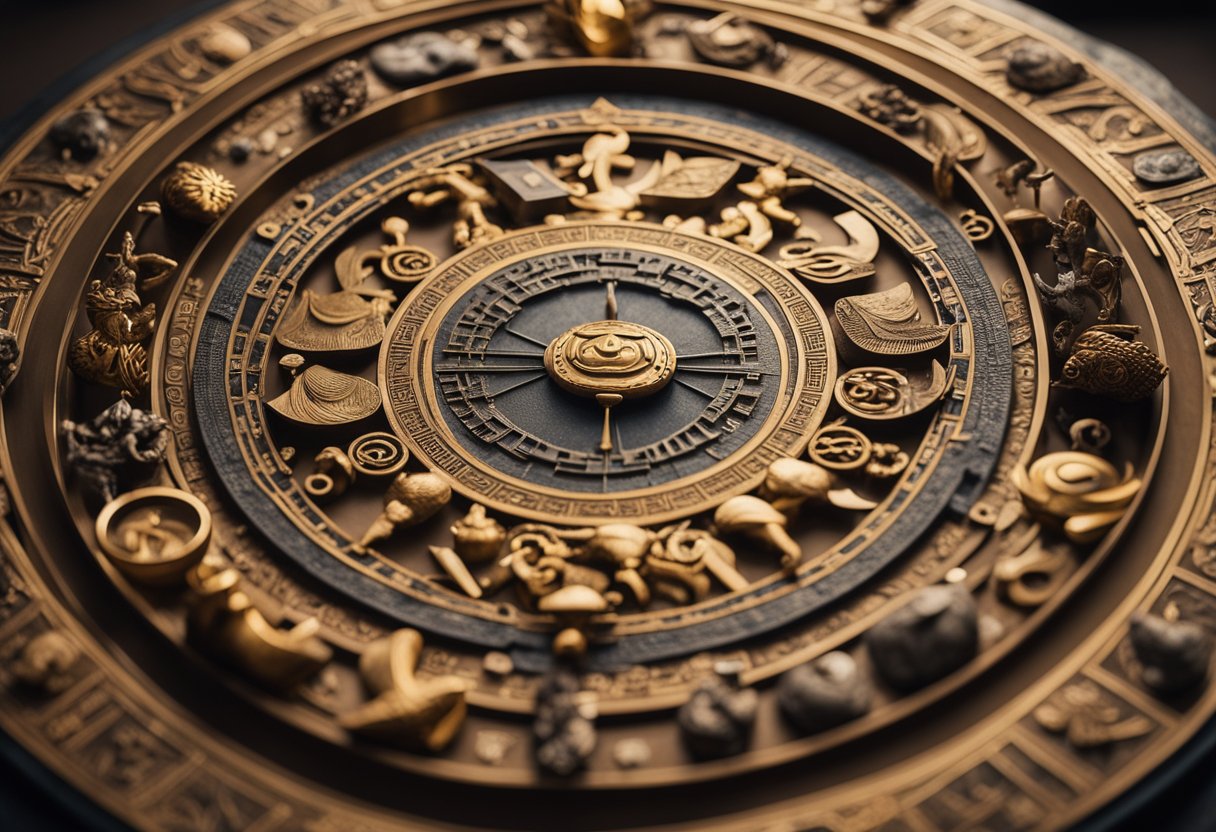
In this section, we address some of the most intriguing questions surrounding world mythology, offering insights into the commonalities and unique aspects that these ancient stories present.
How do the narratives within various mythologies demonstrate universal themes?
Many mythological narratives explore universal themes such as creation, struggle, triumph, and morality. Despite cultural differences, these stories often reflect shared human experiences. This demonstrates how, across societies, we contend with similar fundamental questions of existence and moral dilemmas.
In what ways do mythological tales from different cultures intersect?
Tales from different cultures intersect through parallel myths that recount similar stories, such as floods or hero’s journeys, albeit with unique cultural twists aligning with regional values and beliefs. Such intersections highlight the interconnectedness of human storytelling.
What insights into human nature can be gleaned from studying worldwide myths?
Studying worldwide myths can reveal insights into human nature, such as our innate desire to understand the world around us, our fears, aspirations, and the values we hold. Myths serve as a mirror, reflecting the psychological and societal underpinnings of their origin, times and places.
How has mythology shaped the understanding of cultural heritage and identity?
Mythology is a foundational element in the tapestry of cultural heritage and identity, encapsulating ancestral wisdom and the historical ethos of a community. We can appreciate the lineage of ideologies, values, and shared history that contribute to our cultural identities through myth.
What methodologies are commonly used in the comparative analysis of world myths?
Comparative analyses of world myths often utilise the methodologies of structuralism to identify underlying patterns and archetypes and historicism to understand the socio-cultural context in which these myths were formed. These methodologies uncover deeper meanings and relations between different mythological systems.
Can you explain the role of archetypes in the world’s mythological stories?
Archetypes in world mythologies are character and story models that recur across different cultures, such as the trickster, the hero, or the great mother. These archetypes represent universal, symbolic figures and narratives that resonate on a deep psychological level, providing a framework through which diverse cultures can explore shared experiences.


